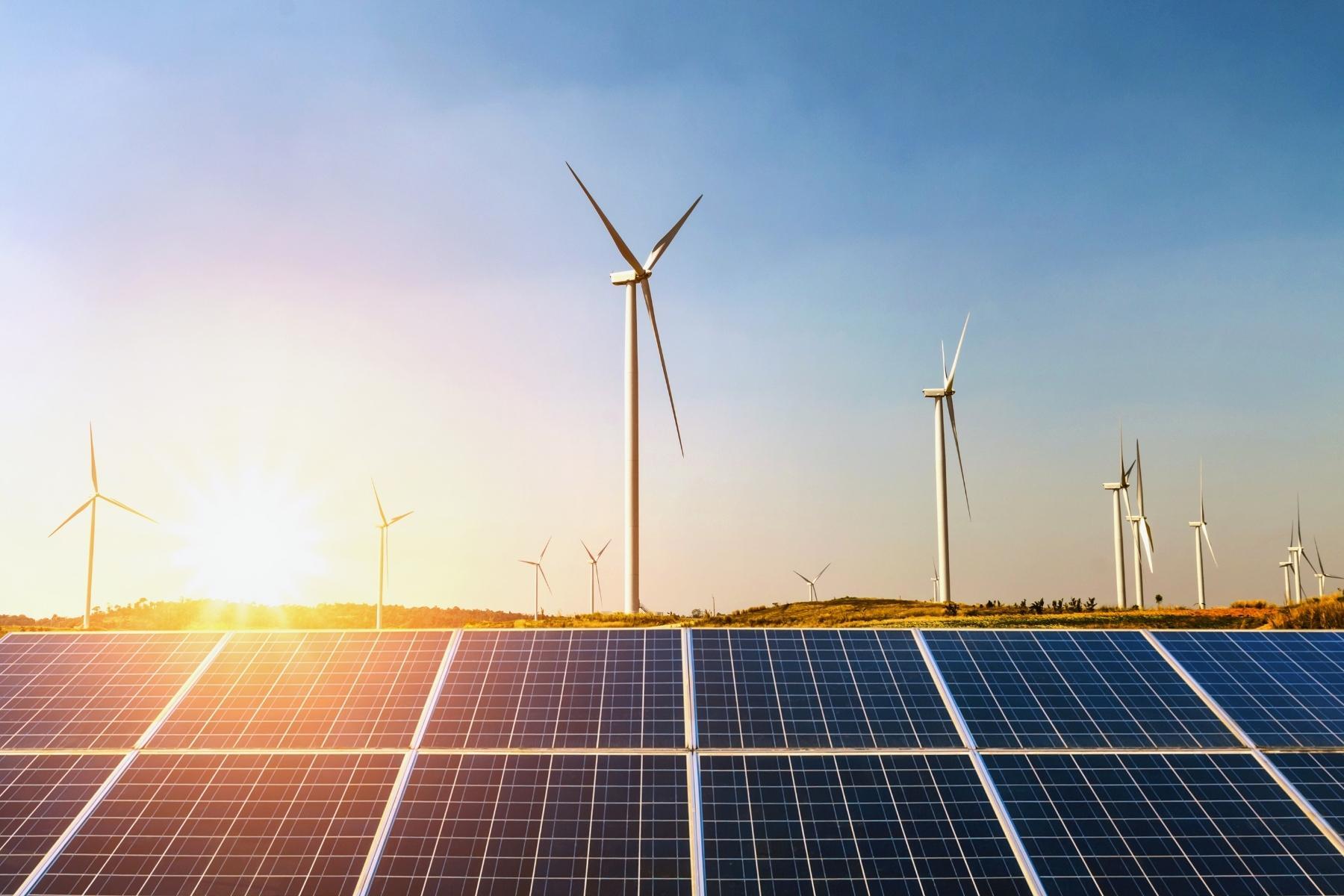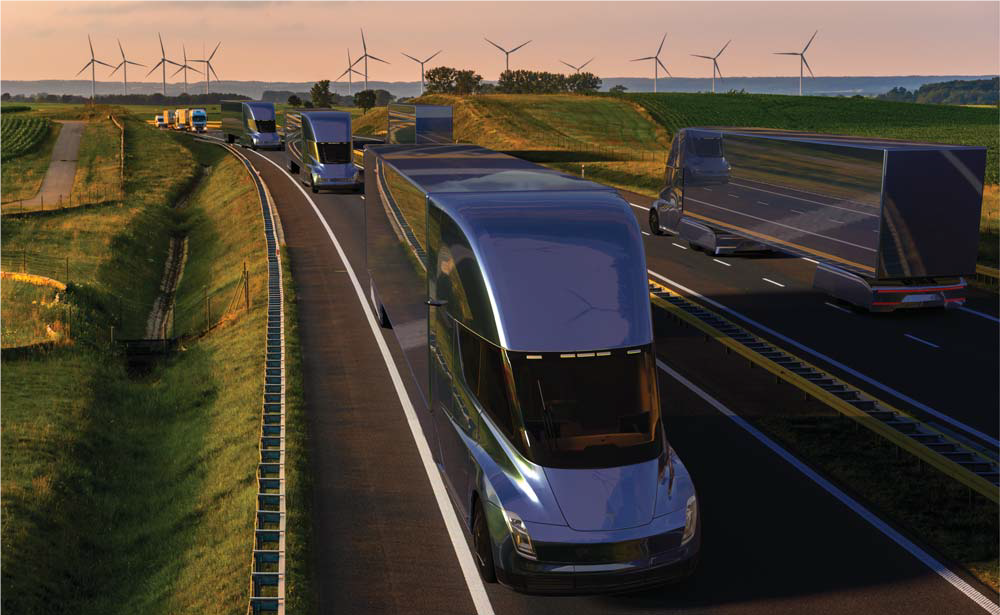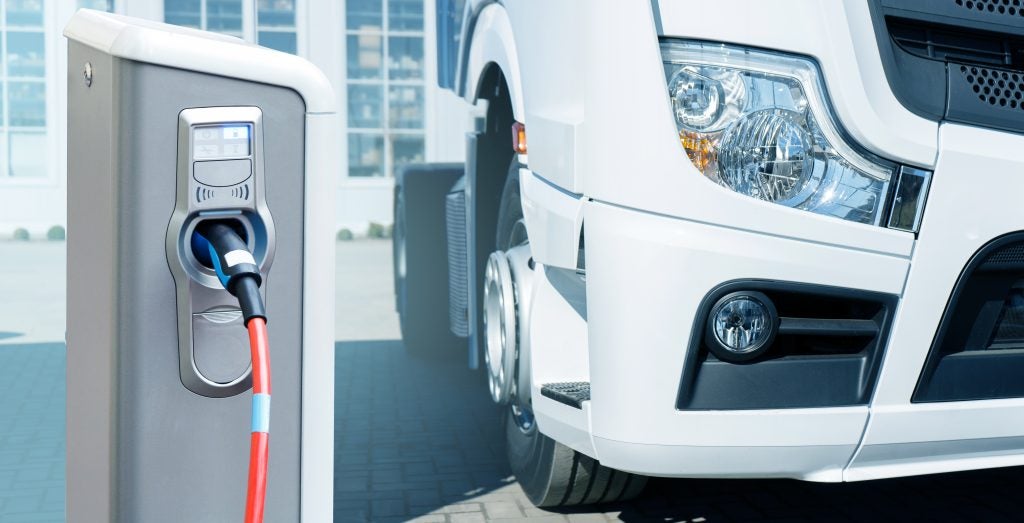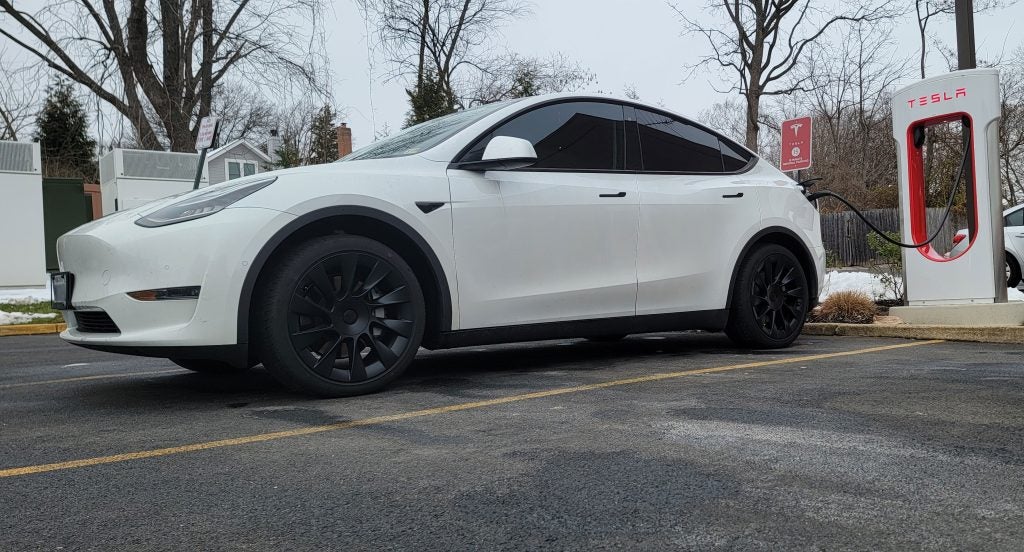
In the intense August heat of Sacramento, the California Legislature wrapped another year of policymaking. The second year of the 2021-2022 legislative session included some significant wins on long-term climate ambition, environmental justice, and clean transportation investments, even as the state fell short in drought response and near-term climate goals. These achievements, coupled with the new game-changing federal climate law, will allow the Golden State to supercharge clean economic growth, drive down climate pollution, and support healthier and more resilient communities.
Here are the top 10 wins (and a few losses) from this year’s legislative session, starting with Governor Gavin Newsom’s climate priorities that were released in August. Four out of those five priorities made it across the finish line:
1. The California Climate Crisis Act
With the passage of this bill (AB 1279, Muratsuchi), California has locked in a pathway for it to reach net-zero greenhouse gas emissions no later than 2045. This enables the legislature, communities and businesses to start long-term planning, with certainty, for a safer future today. Critically, this bill also requires California to slash emissions by 85% — ensuring the state uses solutions at our fingertips now to sharply cut pollution from industrial facilities, vehicles, power plants and more, even as the state starts to build out necessary carbon removal strategies.
2. A framework for carbon capture with community protections
Carbon capture is likely to be a key part of the suite of climate solutions. But solutions meant to reduce emissions should not harm local air quality or public health, especially in communities historically overburdened by pollution. With the passage of SB 905 (Caballero & Skinner), the California legislature has taken a significant step toward responsible deployment of carbon capture technology with a framework that includes essential community protections and environmental integrity provisions.
3. Health and safety setbacks around oil wells
Governor Newsom directed the California Geologic Energy Management Division to establish a regulation to create a public health and safety setback around oil wells in 2021, and with this legislation (SB 1137, Gonzalez & Limon), the policy is now enshrined in law. This long-overdue protection aims to reduce oil and gas pollution harming communities of color and people living below the poverty line, who disproportionately bear the brunt of these health impacts. Thanks to tireless advocacy from California’s environmental justice organizations, state leaders have finally taken decisive action to protect public health.
4. Pathway to 100% zero-carbon electricity by 2045
California has an existing goal to achieve 100% renewable or zero-carbon electricity by 2045. This session, the state has codified interim targets (SB 1020, Laird) to ensure we are moving swiftly and consistently on a path toward a fully clean electricity sector on the timeline the climate demands. The bill sets targets for California to achieve 90% renewable or zero-carbon electricity by 2035 and 95% by 2040 while on the way to the existing 2045 goal.
Legislators also delivered important wins above and beyond the Governor’s climate package:
5. Major investments in zero-emission cars and trucks
Breathe a little easier: The state is making big investments in zero-emission vehicles (ZEVs), just as the federal government is doing through the Inflation Reduction Act. Gov. Newsom, the legislature and clean transportation advocates did an amazing job at securing $10 billion of ZEV funding. This includes money for both cars and medium- and heavy-duty trucks, with an eye towards public health and equity. In 2021, EDF worked with Senator Leyva to pass SB 372, which enabled CARB to offer innovative ZEV financing, but it needed amendments to enable CARB to work with a greater number of experts, and those amendments were finalized in 2022. We expect this legislation to have a growing impact on truck financing over the next few years.
6. Support for community solar and storage
This bill (AB 2316, Ward) allows any customer to receive benefits from community-based clean energy facilities regardless of whether they own a home, empowering customers to save on their energy bills, invest directly in their local community, and help fight climate change. The bill requires community solar projects to include energy storage, which creates a clean power reserve when the sun sets. That ability to store power will also help every Californian by improving the resiliency of our power grid and reducing the risk of blackouts. Moreover, this combination of solar and storage will reduce California’s reliance on old and dirty power plants.
7. Cleaning up the backlog of essential electricity transmission projects
The state passed a suite of major transmission reform bills to help make the California electric grid both cleaner and more reliable. The state continues to face a major backlog and certain smart reforms were enacted, including two key bills (SB 887, Becker) (SB 1174, Hertzberg) that will make new transmission come online in a responsible and more timely manner.
8. Achieving net-zero greenhouse gas emissions from state agency operations
While California’s leaders codified an economy-wide net-zero goal, the legislature also directed our state government agencies to start planning for how to achieve net-zero greenhouse gas emissions by 2035 — or as soon as possible thereafter — from their own operations. This means decarbonizing state buildings and transitioning state vehicle fleets to ZEVs and more. This planning goal in Senator Becker’s SB 1203 is a full ten years ahead of the economy-wide goal, meaning the government of California itself is going to help forge the path to a decarbonized economy.
9. $40 million for the Multi-Benefit Land Repurposing Program
With California’s ongoing drought, some agricultural land will necessarily have to go out of production, which could have an array of impacts if not managed strategically. Funding from the Multi-Benefit Land Repurposing Program at the Department of Conservation helps growers and communities an opportunity to repurpose these lands into new beneficial uses that require little to no water, including creation and restoration of habitat, multi-benefit groundwater recharge and low-impact solar. Importantly, benefits to disadvantaged communities are prioritized. While the $40 million investment is far short of the $500 million proposed by the Senate, which was supported by EDF and our allies, we are confident the significant demand for this program (as evidenced by the $111 million in requests in the first round of grant applications for which there was only $50M available) and the myriad benefits it provides growers and communities will support greater investment in the next year.
10. Expanding the universe of support for zero-emission trucks
Gov. Newsom also recently signed bills that include extending sales tax exemptions for transit buses (AB 2622, Mullin), creating of a ZEV Market Development Office and a ZEV Equity Advocate (SB 1251, Gonzalez), accelerating deployment of ZEVs in the state fleet (SB 1010, Skinner), extending the Carl Moyer funding program (AB 2836, Garcia) and providing continued support for good quality infrastructure reliability for ZEVs (AB 2061, Ting).
While the $10 billion zero-emission budget and each of these transportation bills is important in their own right, they contribute to the universe of support for the Air Resource Board giving direction for a strong Advanced Clean Fleets (ACF) rule in October, and will collectively greatly reduce air and climate pollution while the ACF saves California billions of dollars. Zero-emission trucks truly are a win-win.
—
While this was a big year for meaningful environmental action in California, a few key proposals fell short, including the last bill in the Governor’s climate package (AB 2133, Quirk). This bill accelerated California’s 2030 economy-wide greenhouse gas reduction goal from 40% below the 1990 level to 55%. This would have catalyzed an important increase in near-term ambition — which is key for averting the worst impacts of climate change — but fell just short of the needed votes in the Assembly.
Passing this essential legislation is a big step forward, but now California needs to implement these measures swiftly to reduce emissions, increase resilience and ensure equitable outcomes, especially for those communities at greatest risk of climate change. With the adoption of these measures, California continues to provide a leading model for action for other states.















